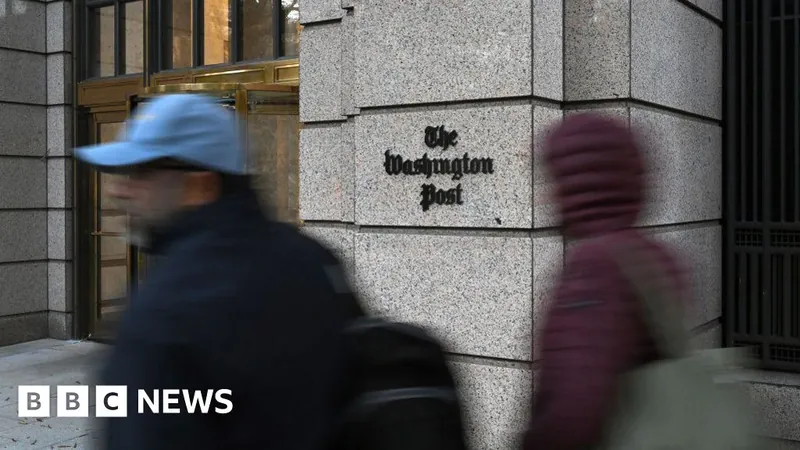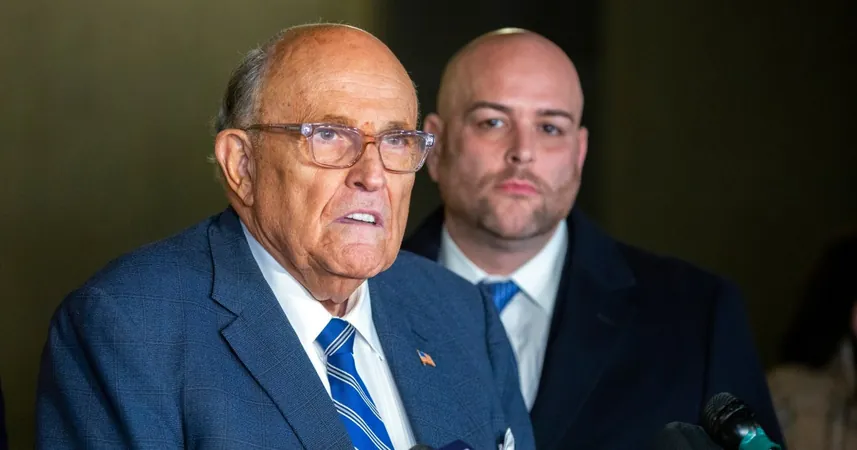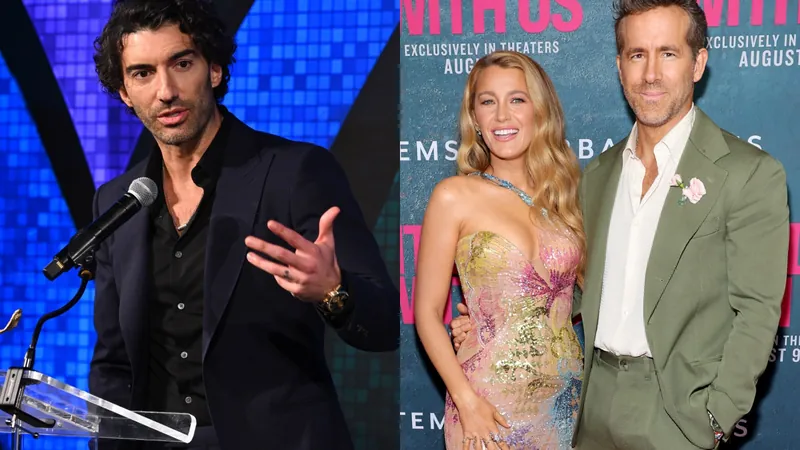
Resignation Sparks Debate Over Press Freedom: Washington Post Cartoonist Departs After Jeff Bezos Satire Censored
2025-01-05
Author: Noah
Introduction
In a stunning turn of events, Pulitzer Prize-winning cartoonist Ann Telnaes has resigned from the Washington Post after the publication declined to run a cartoon that humorously criticized its billionaire owner, Jeff Bezos. This incident has ignited discussions about censorship and the implications for editorial independence in media.
The Controversial Cartoon
The controversial cartoon illustrated Bezos alongside other tech magnates, like Meta's Mark Zuckerberg and OpenAI's Sam Altman, kneeling before a statue of then-President-elect Donald Trump, offering bags of cash. Telnaes intended the piece as social commentary on the way powerful figures were trying to appease Trump during his transition into office.
Ann Telnaes' Resignation Announcement
In her resignation announcement shared on Substack, Telnaes expressed her dismay, stating, “In all that time I've never had a cartoon killed because of who or what I chose to aim my pen at. Until now.” She articulated concern over the potential dangers this decision poses to journalistic freedom, emphasizing the troubling trend of billionaires with vested interests influencing editorial choices.
The Washington Post's Response
However, David Shipley, the Washington Post's editorial page editor, countered Telnaes' claims, arguing that the cartoon was rejected due to concerns over thematic repetition, not because it targeted Bezos. He insisted that another similar piece was set for publication, thus leading to his decision. “I respect Ann Telnaes and all she has given to The Post. But I must disagree with her interpretation of events,” he explained.
Historical Context
This clash over editorial content isn’t an isolated incident. In 2015, another of Telnaes’ cartoons that depicted the children of Texas Senator Ted Cruz was rescinded under the newspaper's policy of not involving minors in political satire. Such decisions raise questions about the editorial standards and policies illustrating the complexities of navigating political satire within a media landscape owned by influential figures.
Timing and Broader Implications
The timing of this resignation is particularly poignant, given Bezos' recent announcement that Amazon would contribute $1 million to Trump's inauguration and the backlash the Washington Post experienced over its decision not to endorse Vice-President Kamala Harris during the contentious 2020 election season, which reportedly led to a significant subscriber loss.
Conclusion
As debates continue over how media outlets balance editorial freedom against corporate interests, Telnaes' resignation serves as a compelling reminder of the challenges faced by journalists today in a landscape increasingly dominated by powerful individuals and their influence on press narratives. Will this incident lead to more clarity about press autonomy, or will the shadow of corporate interests continue to loom over journalistic expression? The future of editorial independence may very well depend on the responses to such provocative incidents.









 Brasil (PT)
Brasil (PT)
 Canada (EN)
Canada (EN)
 Chile (ES)
Chile (ES)
 Česko (CS)
Česko (CS)
 대한민국 (KO)
대한민국 (KO)
 España (ES)
España (ES)
 France (FR)
France (FR)
 Hong Kong (EN)
Hong Kong (EN)
 Italia (IT)
Italia (IT)
 日本 (JA)
日本 (JA)
 Magyarország (HU)
Magyarország (HU)
 Norge (NO)
Norge (NO)
 Polska (PL)
Polska (PL)
 Schweiz (DE)
Schweiz (DE)
 Singapore (EN)
Singapore (EN)
 Sverige (SV)
Sverige (SV)
 Suomi (FI)
Suomi (FI)
 Türkiye (TR)
Türkiye (TR)